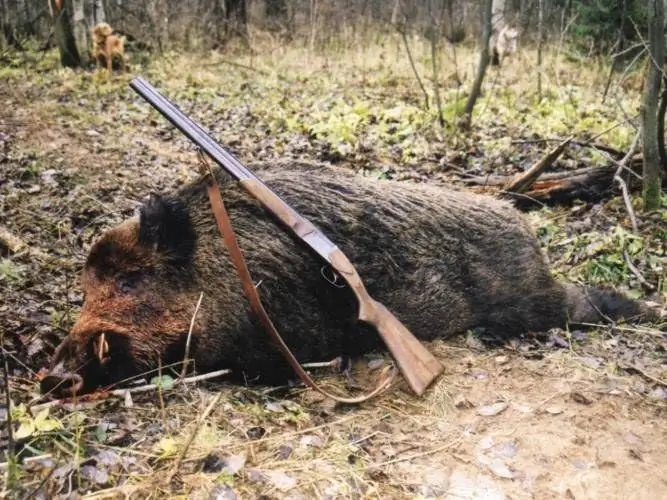- Author Nora Macey macey@family-relation.com.
- Public 2023-12-16 10:17.
- Last modified 2025-01-23 08:47.
Long gone are the days when anyone who considers himself a hunter could just throw a gun behind his back and go into the nearest forest in search of game. In most civilized countries, hunting and fishing are strictly regulated. To go fishing, you need to have a license issued by the relevant government department. Those hunters who ignore this requirement of the law are called poachers.

Who are called poachers
Poaching is understood as illegal hunting or fishing in which legal requirements are violated. Poachers are those who hunt without a proper license, in forbidden places, violate the terms of the hunt or lead it in ways and tools that are expressly prohibited by law.
For many thousands of years, man and animals have been forced to coexist with each other. Some representatives of the fauna were gradually domesticated by humans and became pets. Others are still considered dangerous predators or game that humans continue to hunt.
In the old days, hunting was often almost the only way for a person to provide himself with food. Subsequently, a person realized that the fur, skins and bones of individual animals can be used on the farm.
Having taken the highest place in the food chain, man began to mindlessly exterminate many species of animals, often not for survival, but simply for the sake of sports interest.
The losses suffered by the fauna as a result of thoughtless hunting have reduced the number of species. Therefore, many states began to impose restrictions on the shooting and trapping of wild animals. The terms for hunting were set, the places for it were determined. A list of hunting methods permitted by law was also compiled. As a rule, hunting can only be carried out today by those who have received a license (permit) from the state.
How nature is protected from poachers
What are the usual restrictions for hunters? Hunting is prohibited during the breeding season of wild animals. The weapon must have certain characteristics and be registered with law enforcement agencies. You cannot beat the beast in the territories of national parks and reserves. Rare and endangered species of animals are subject to special protection.
Unfortunately, these strict rules are ignored by many hunters. Statistics from different countries show that the level of poaching remains quite high. And most often the incentive for breaking the law is the pursuit of easy money. Some businessmen, for example, are willing to pay a lot for the skins of rare animals or for the valuable tusks of elephants.
Poaching is worst in developing countries, where illegal hunting is often the only means of survival for poachers and their families.
Governments of countries interested in the conservation of wildlife are taking measures to combat poaching. Special detachments of gamekeepers are organized, which patrol the reserves, catch violators of the law, confiscating prey and hunting tools. In the legislation of a number of countries there is administrative and sometimes even criminal liability for violation of the rules of hunting and fishing.






